Spotlight on: Goran Rebić
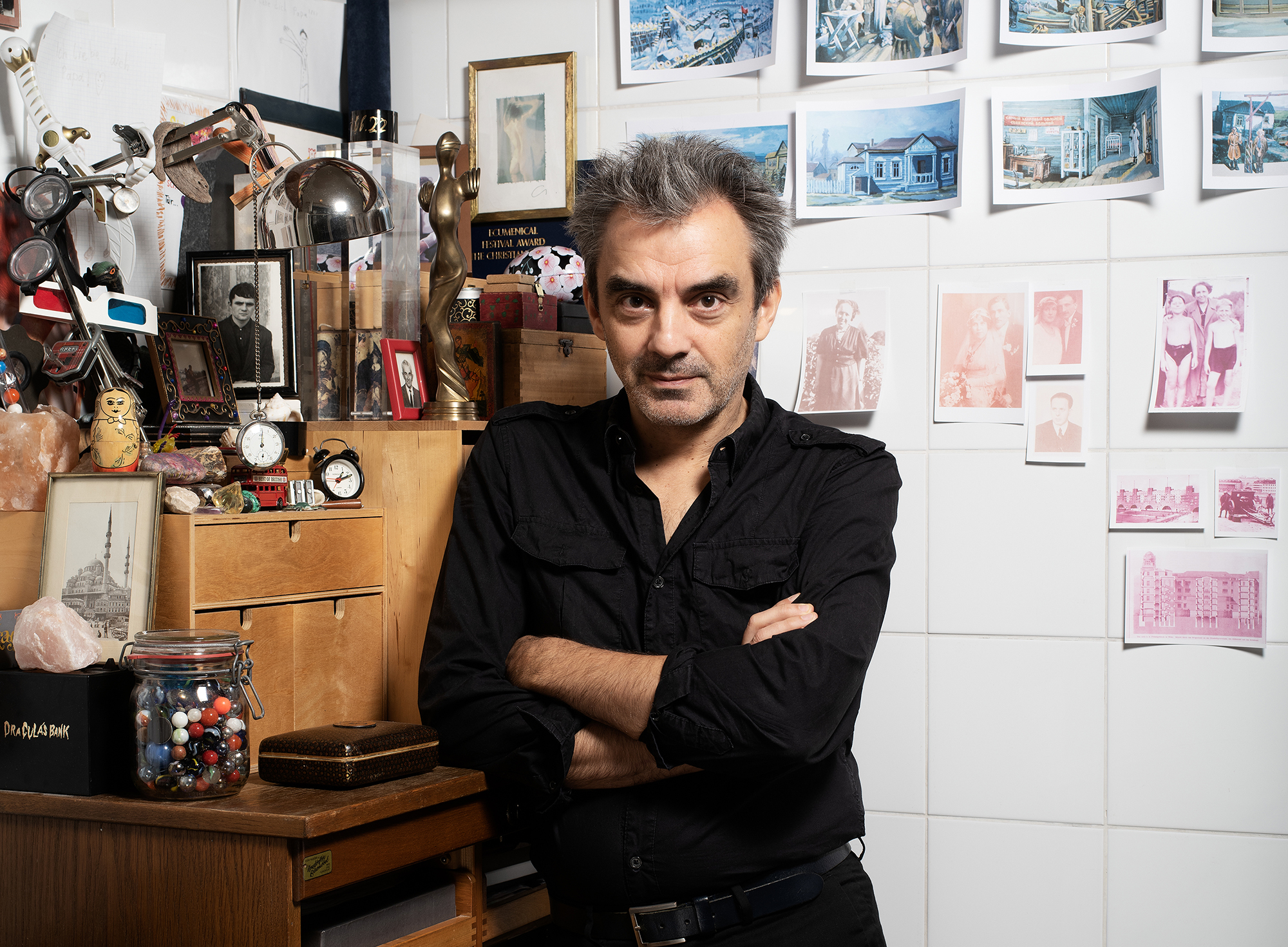
Goran Rebić © Diagonale/Elsa Okazaki
The Diagonale is extraordinarily pleased to dedicate its program series Spotlight on to Goran Rebić in 2023. The Spotlight on (Zur Person) series contemplates Austrian film and cinema culture by tracing the biography of acclaimed Austrian filmmakers. In 2023, the program format is dedicated to Goran Rebić, a filmmaker and screenwriter who has at times also appeared as an actor. The film program Spotlight on: Goran Rebić will be presented from March 22 to 26, 2023, in Graz in the framework of the Diagonale and accompanied by in-depth talks, the workshop talk “Ich bin Geschichte – Filmen zwischen den Zeiten“ as well as a Listening Session.
Rebić’s works are memorabilia that keep memories alive with a view to the future. His short films, documentaries, and feature films tell of work migration to Vienna, the independence and civil war in Georgia, the collapse of Yugoslavia, and the Danube as Europe’s lifeline. Rebić’s oeuvre thereby focuses mainly on the cesuras, fallings-out, and social transformations of the 1990s and makes visible – especially in an overview of the films – European cultural history with a global dimension. Despite this distinct focus, he is also always interested in contemporary (pop) cultural phenomena: History meets Madonna and Idoli, culture meets identity.
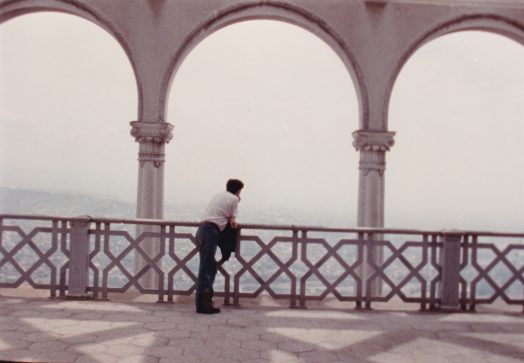
During the Many Years, Goran Rebić © sixpackfilm
Film list Spotlight on: Goran Rebić
— The Punishment (D: Goran Rebić, AT 2000)
— Jugofilm (D: Goran Rebić, AT 1997)
— Gekommen bin ich der Arbeit wegen (D: Goran Rebić, AT 1987)
— Domovina (D: Goran Rebić, AT 1990)
— During the Many Years (D: Goran Rebić, AT 1991)
— Am Rande der Welt (D: Goran Rebić, AT 1992)
— Donau, Duna, Dunaj, Dunav, Dunarea (D: Goran Rebić, AT 2003)
— In Reference: Le Thé au harem d’Archimède (D: Mehdi Charef, FR 1985)
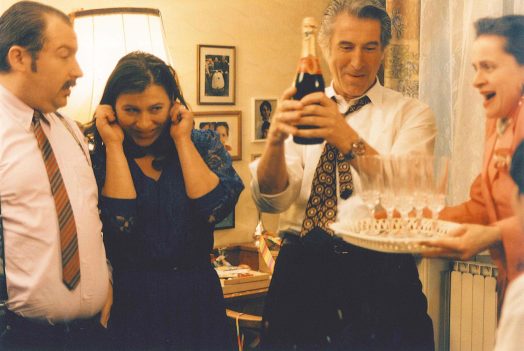
Jugofilm, Goran Rebić © Lotus Film
In Rebić’s first film, Gekommen bin ich der Arbeit wegen (AT 1987), he accompanies his father to the sites where he looks for work and presents one of the first Austrian guest-worker films. This is followed by two essayistic documentaries on Georgia’s independence (During the Many Years, AT 1991) and its civil war (Am Rande der Welt, AT 1992). In 1997, he made the deeply emotional, tragicomedy feature film Jugofilm (Thomas Pluch Screenwriting Prize (Special Prize of the Jury) at the Diagonale’98), in which Ljubiša Samardžić, a favorite among Yugoslavian audiences, played alongside then-contemporary Austrian stars such as Wolf Bachofner and Eva Mattes. The film depicts the Yugoslavian war from the perspective of the Viennese diaspora. One year later, Rebić appeared as an actor in Florian Flicker’s feature film Suzie Washington (AT 1998). Rebić had a long-term work friendship with Flicker – as he did with Michael Glawogger. For The Punishment (AT 2000), which gives a voice to protagonists of a lost generation in cosmopolitan Belgrade, Goran Rebić was awarded the Grand Diagonale Prize in 2000. When viewing the documentary, one is inevitably reminded of our present – political comparisons, as Rebić admonishes, that are useful only when employed precisely and with historical awareness.
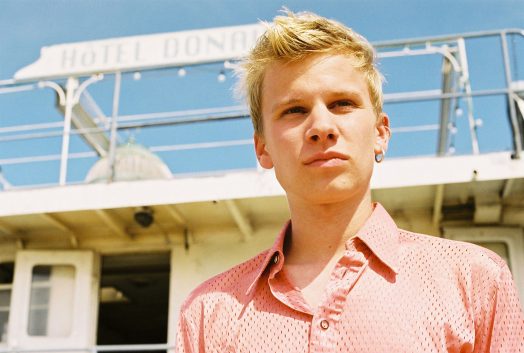
Donau, Duna, Dunaj, Dunav, Dunarea, Goran Rebić © Lotus Film
The Spotlight on program will also screen the short documentary Domovina (AT 1990). Based on a Serbian folk song from the era of the Balkan wars from 1912 to 1914, the film tells of immigrants who are haunted by the hymns of their homelands: “A musical winter journey to the Serbian-Romanian border when unexpectedly everything began to change there”, as the former Diagonale festival director and now producer Constantin Wulff once remarked. In 2003, the year that Graz became European Cultural Capital, Rebić was once again occupied with one of his main themes: the Danube area, in his road movie on water Donau, Duna, Dunaj, Dunav, Dunarea (AT 2003). The fairy-tale like feature film with Robert Stadlober, Ioana Flora, Susanne Wuest, and Otto Sander will go ashore at the festival on the Mur once again on the occasion of the Diagonale’23 after 2004.
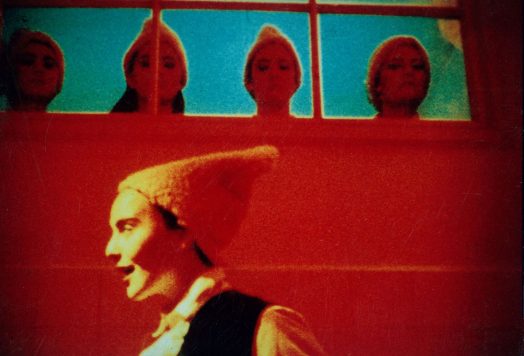
Domovina, Goran Rebić © sixpackfilm
Furthermore, with reference to his oeuvre, Rebić will show Le Thé au harem d’Archimède (FR 1985), honored in Cannes in 1985 and later also with the César as the best first feature film, for which the factory worker Mehdi Charef adapted his own novel about the Arabic youth milieu in Paris’s banlieues. With a glance at his own portfolio, in the workshop talk “Ich bin Geschichte – Filmen zwischen den Zeiten”, Goran Rebić will shed light on the (non-)feasibility of some of his cinematic projects in Austria. Additionally, focus will be on his personal musical socialization and the interplay of emotions, image, and sound in a Listening Session within the framework of the festival. A comprehensive essay by Otto Reiter on the Spotlight on: Goran Rebić series will be published in the Diagonale’23 catalogue (Czernin Verlag).
Goran Rebić was born in 1968, in Vršac in Vojvodina in former Yugoslavia. In 1969, he immigrated to Vienna with his parents, where he later studied directing at the University of Music and Performing Arts (Vienna Film Academy).


